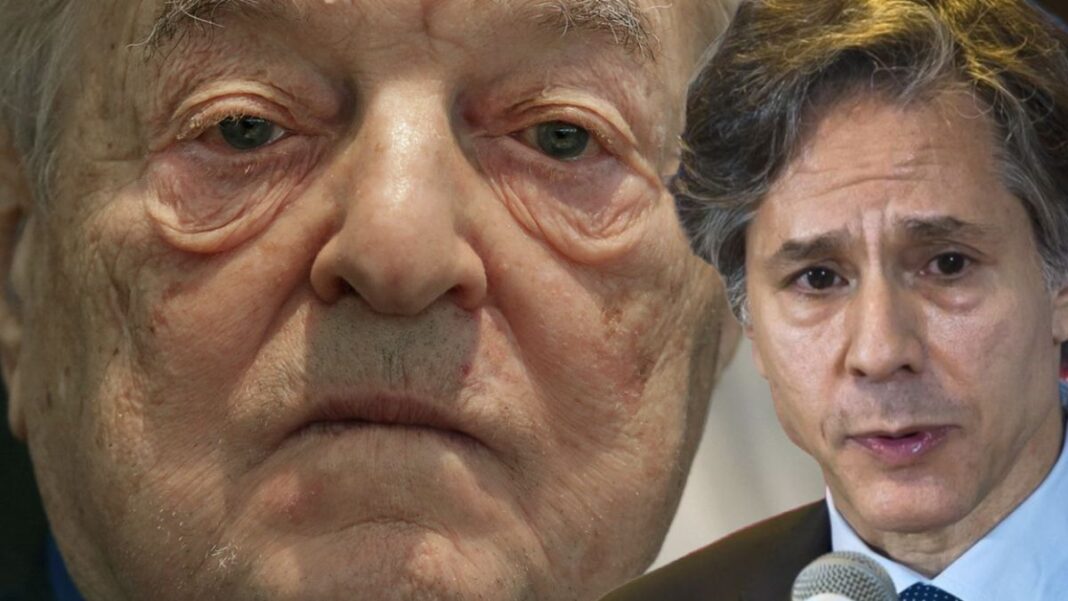Earlier in May, Secretary of State Antony Blinken announced sanctions against former Albanian president (1992–1997) and prime minister (2005–2013) Sali Berisha, alleging “significant corruption,” and banned him, his wife, and his children from entering the U.S. Berisha headed a center-right political party called the Democratic Party (a counterintuitive name from an American perspective) that was founded in 1990 after the ouster of the nation’s Communist regime.
The seventy-six-year-old Albanian politician, an ally to both Bushes, currently serves as an opposition member of Albania’s parliament, of which the Socialist Party of Albania holds a majority.
Blinken said in a statement that during his second stint in leadership, Berisha “was involved in corrupt acts, such as misappropriation of public funds and interfering with public processes, including using his power for his own benefit and to enrich his political allies and his family members.” No details or supporting evidence was provided. Berisha has insisted there is “zero evidence” behind the corruption allegations, asserting the U.S. ban was based on “misinformation” from outlets backed by Soros.
Even taking the allegations at face value, we’re to wonder why these sanctions happened now seemingly out of the blue. New York Republican Representative Lee Zeldin immediately flagged the move as abnormal and penned a letter to the State Department’s Bureau of Legislative Affairs to request a detailed explanation of the process that the State Department followed.
For that, Berisha blames Soros and told the Washington Times that he would fight the allegations proving there is “no evidence” for a defamation suit against Blinken in a European Court. He also challenged the Biden administration to produce any evidence of corruption, stating:
It is my deep conviction that this declaration against me has been based entirely on misinformation that Mr. Secretary of State Antony Blinken has gotten from a corrupted lobby process involving Edi Rama and George Soros, who are close friends. They have no evidence. None at all. If they announced one bit, I will be most thankful. But they have no concrete proof based on fact, not manipulation or slander.”
I have been an outspoken critic of George Soros and his close friend Edi Rama, and because of this, the State Department has made this allegation against me and blocked me. There is no other reason. There could be no other reason.
Soros and Berisha had publicly traded blows before, with Berisha saying in 2017 that Soros had turned from a “great friend” to a “great danger” to the Albanian people. “My statements on George Soros and his mafia, as a major danger for the Albanian democracy, are based on authentic documents. My statements at the Albanian Parliament against the mafia acts of Soros and his network in Albania, are based on facts which date before the current debates taking place in the United States on the activity of the chief speculator of the planet,” he explained. Just nine years earlier, he had called Soros a “great friend of the Albanians.”
By Matt Palumbo








